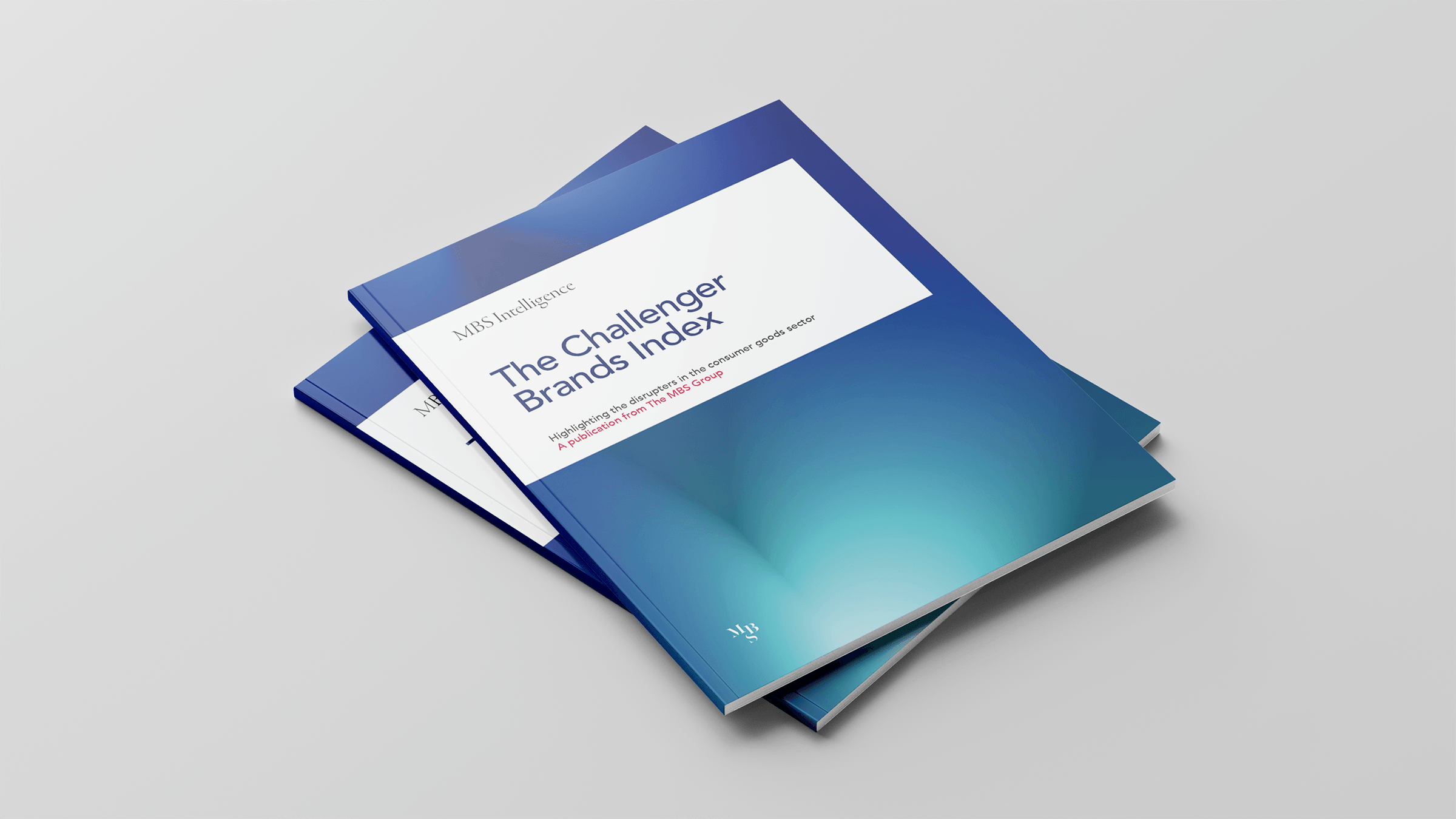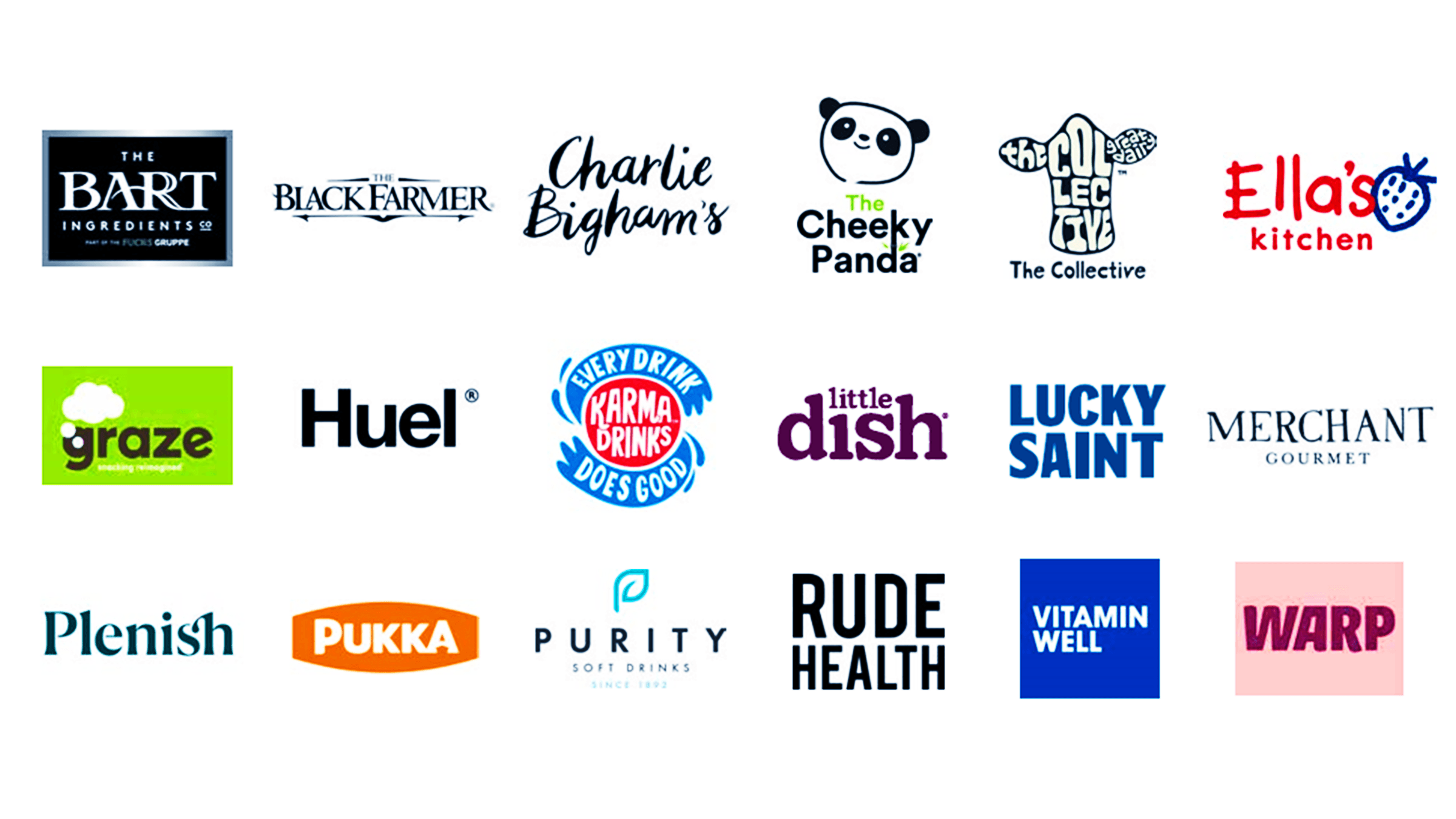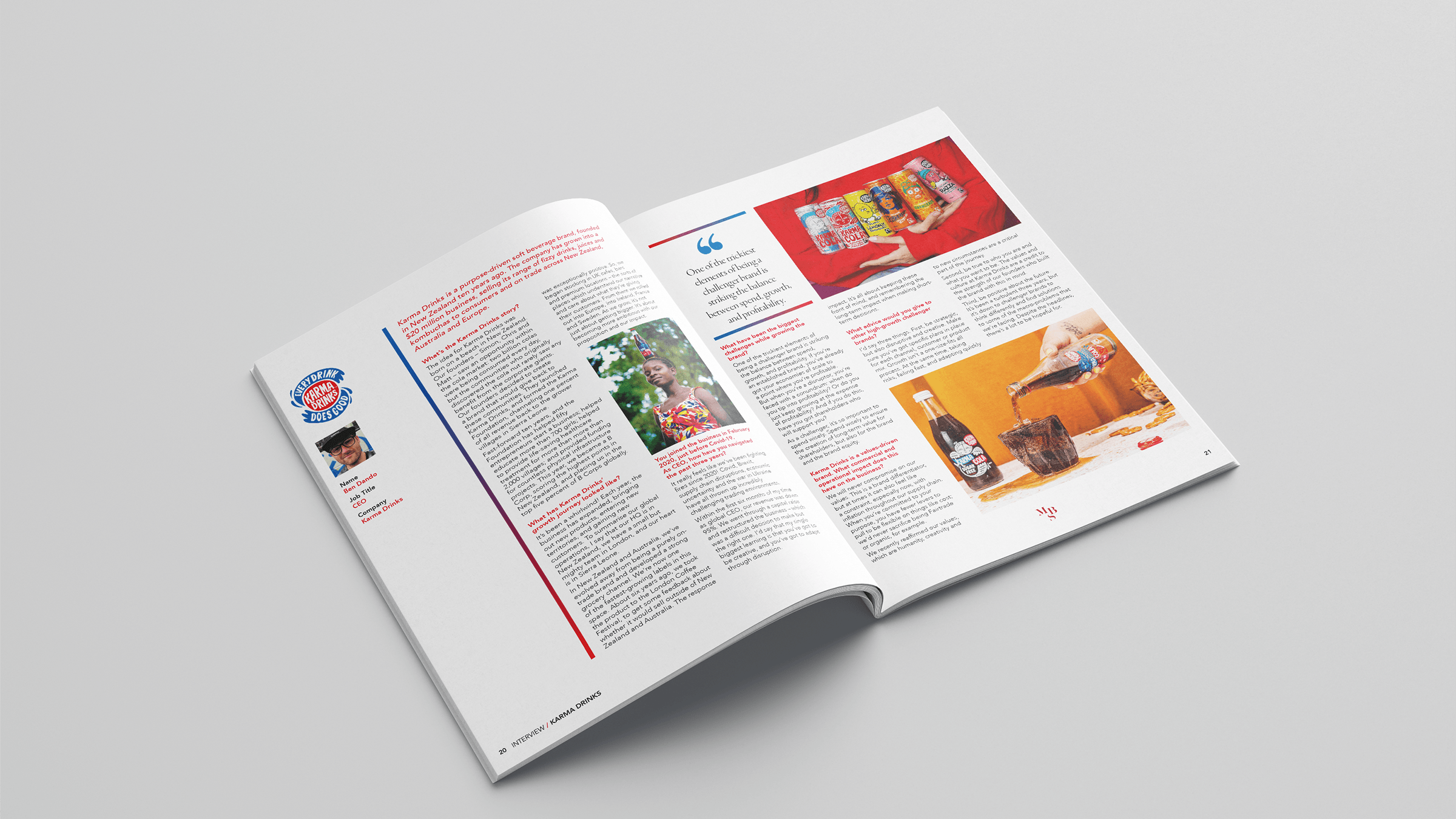At MBS, we’ve been advising founders and hiring into challenger brands for nearly thirty years. In that time, it’s been impossible not to notice a shift in the industry: when once the consumer goods and grocery sector was home to just a handful of successfully-scaled disruptor brands, today the space is thriving.
Across the entire sector – covering food, drink, health, beauty, household products, and pets – we’ve seen hundreds of exciting labels emerge and grow, challenging the status quo and leaving a permanent mark on customer habits and preferences. Consumers have never had more choice, and the industry has never been so innovative.

But for any challenger brand, the journey to growth is not straightforward. And for every business that’s seen success, there are many more which have failed. There are countless questions that founders and leaders must ask. When is the right time to launch? How is best to navigate early relationships with suppliers? At what point is a senior leadership team necessary? What are the risks and benefits of outside investment? What does an effective advisory board look like? And how can a startup’s unique culture be retained while also aggressively scaling?
With these questions in mind, we wanted to bring together a selection of our industry’s most exciting brands and share their stories in our latest report: The Challenger Brands Index. Over the past few months, we have conducted in-depth interviews with founders, Chairs, CEOs, and investors of successfully scaled brands, to lift the lid on how to disrupt a market and challenge a category.
The businesses highlighted in this Index are from right across the consumer goods sector, representing different categories, ownership structures, and business models. Each one is also at a different stage in their journey – some are still founder-owned, while others have been acquired by blue-chip businesses. Covering everything from hiring advice to retail strategies, each of the entries in this publication prove that there’s no one-size-fits-all approach to growing a challenger brand. Reading back on this report, there are a few threads which tie each of the businesses we’ve highlighted together.

First, an unwavering focus on culture. Every leader we interviewed spoke passionately on the importance of cultivating a positive internal culture which reflects their brand values. The winning businesses are those which think deliberately about retaining a startup culture, even when other parts of the business formalise. As Patrick Cairns, CEO at Charlie Bigham’s, put so aptly: “culture doesn’t happen by accident”.
“Every leader we interviewed spoke passionately on the importance of cultivating a positive internal culture which reflects their brand values”.
Second, every brand in this Index has struck a careful balance between hiring in specific industry expertise and appointing leaders with a ‘challenger mindset’. In bringing together this report, it was fascinating to hear different views on the right time to hire executives with blue-chip FMCG experience, for example, or how to tell if leaders are equipped to work in a fast-paced disruptor environment. Sarah Baldwin, CEO at Purity Soft Drinks, offered advice on this point, sharing with us that asking potential candidates to predict future challenges in an interview can often reveal if they’re ready to “roll their sleeves up” and get stuck in to life in a challenger brand.
Thirdly, purpose and values sit at the heart of every brand highlighted in this publication. Whether it’s sustainability, health, or social impact, today’s disruptor brands are clear about what they stand for, and are using their values to attract the next generation of talent. “If you could pick the top things millennials and Gen Zs are looking for, ‘make an impact’ is always up there,” Mark Cuddigan, CEO at Ella’s Kitchen, told us. “They want to be doing good and working for a company that aligns with their values.”

It has been a true privilege to speak with so many inspiring leaders for this report. Through these interviews we have unearthed fascinating stories and invaluable advice about what it takes to succeed in such a competitive commercial landscape.
You can read the full Index here. We hope it will be a useful tool for the consumer goods industry – for early-stage startups looking to grow, for small brands hoping to scale, and for our sector’s leaders of today and tomorrow.
huw.llewellynwaters@thembsgroup.co.uk | scarlett.mayne@thembsgroup.co.uk | @thembsgroup








